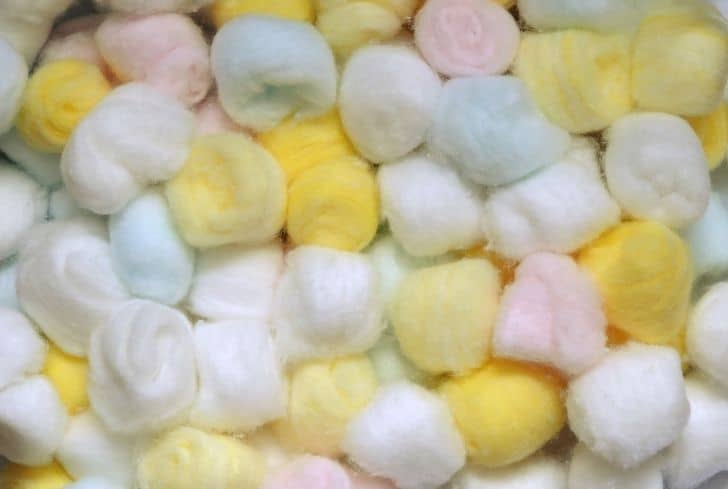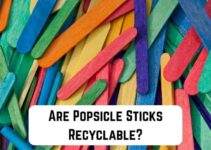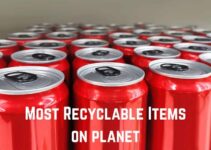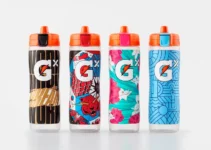Cotton has become the most widespread profitable non-food crop globally. There are different products manufactured from cotton; one of the most popular products is cotton balls. The cotton industry provides a source of income to over two hundred and fifty million people worldwide.
Over the years, cotton balls have had a wide variety of purposes. It is used for medical purposes to prevent or stop bleeding from minor punctures and disinfect sensitive spots. Ladies use it to apply and remove makeup and nail polish. Cotton balls can also be used in cleaning.
As good and useful as cotton balls are, there are major concerns about how it affects the environment. Does its use pose a threat to the state of the environment? With the frequent production and use of cotton balls, is it okay to say they are not dangerous to the environment?
If you are concerned with the current state of our environment, you will have many questions regarding cotton ball usage, disposal, and how it affects the environment. So please sit back, relax, and enjoy this post!
Can You Recycle Cotton Balls?
Cotton balls have become an item you will find in almost all homes. They serve a wide variety of purposes, and you will always find them very useful. But, these small fluffy disks we all make use of, are they recyclable? Or do they end up in the landfills after we dispose of them? Let us find out.
No, you cannot recycle cotton balls. Cotton balls become contaminated after every usage, and it isn’t easy to recycle them. For cotton balls to be recycled, there would be a lot of breakdowns. For example, to recycle a cotton ball used to clean off makeup, the makeup needs to be separated from the cotton balls. You can imagine how difficult that would be.
Some cotton balls are not produced from natural cotton. They are made of synthetic fibers, implying that they contain a substantial amount of plastics. These types of cotton balls are impossible to recycle, so they end up in landfills.
You cannot dispose of cotton balls by flushing them down the toilet. If you flush them down the toilet, they end up clogging the toilet trap. When cotton balls come in contact with water, they expand, so trying to flush them down the toilet will result in your toilet getting blocked with cotton balls.
So, if you cannot recycle cotton balls, how can you dispose of them properly? There are some easy methods of upcycling cotton balls. You can use them as an air freshener. Just dip the cotton balls in sweet essential oil, pile them into a small bowl and place it on a shelf where it will emit the sweet fragrance.
You can also use cotton balls to protect your crops from rodents and rabbits. Dip the cotton balls in vinegar and place them around your crops; the scent will keep the rodents away.
You can also use them to keep insects off. When you have a picnic, saturate a cotton ball with borax, some water, and sugar. Please place it in a small bowl. The mixture will attract and kill the insects. But, be sure to keep your pets away from the mixture.
Are Cotton Balls Biodegradable?
Ironically, many products we find very useful in our daily life activities are not always safe. Cotton balls are one of such products. We find cotton balls useful for something, and if you need to apply antibiotics to a cut on your body, you use cotton balls. If you need to apply and remove makeup and nail polish, you can use cotton balls.
But, can bacteria and other organisms break down cotton balls? Are they biodegradable? Cotton as a crop is produced by nature, so it is biodegradable. But can we say since the original product is biodegradable, the resulting products are also biodegradable?
No, cotton balls are not biodegradable. Used cotton balls contain toxins that are dangerous to the organisms that will break them down. So, when cotton balls are dumped in the landfills, they only take up space because bacteria and other organisms cannot break them down.
Cotton is one of the crops that needs a lot of pesticides to protect them. They are the most pesticide-doused plant in the world. These pesticides used are very toxic, and they last for a very long time. Even after the production of different cotton products, there are still traces of the toxins of the pesticides.
The toxins left by the pesticide and the synthetic products used in the manufacturing of cotton balls are harmful to bacteria that ought to break them down. So, rather than reducing their lifespan to break down cotton balls, these bacteria avoid them.
Are Cotton Balls Compostable?
With the way we find cotton balls useful in our everyday lives, it will not be a surprise, and you have a bin filled with them. Now you do not know how to dispose of them properly. You don’t know if you can dump them in the recycle bin. So, the question is, are cotton balls compostable?
Compostable materials are biodegradable materials; microorganisms can break them down. They are products that can decay. Some of them are dead animals, food waste, human and animal waste. These products are all dumped at a composite site, and with time, they decay and fertilize the soil.
Cotton balls are not compostable. The same reason why bacteria cannot break them down. Although cotton balls are produced from cotton, a natural fiber that is biodegradable and compostable, cotton balls are not compostable.
Cotton balls become contaminated after use, nail polish, mascara, facial toner, and other things we use them for. On your skin, these products do no harm, but they are toxic and contain harmful chemicals. So, cotton balls can’t be broken down into their natural elements.
Also, during the production of cotton balls, synthetic products are used in addition to natural cotton. These synthetic products alter the properties of the natural elements in cotton. When cotton is disposed of at landfills, they do not decompose, and they remain the way they are causing more harm to the environment because of all the toxins in them.
Are Cotton Balls Bad For The Environment?
An environmentally-conscious person has one important concern, how we can save and protect our environment. If you are one of the people who have chosen to take active steps to protect our environment, you would be asking if the products we use every day do not cause damage to our environment.
Yes, cotton balls are bad for the environment; as stated earlier, cotton is the most pesticide-doused crop globally. The amount of pesticide needed to protect a cotton field from pests from planting till harvesting is enough to turn any land into a wasteland. About a quarter (ten percent) of the world’s pesticides is used in farming cotton.
Pesticides contaminate water, soil, turf, and other vegetation. Pesticides also pose a danger to insects, and other organisms, including fishes and birds. The use of pesticides has also been proven to be linked to Alzheimer’s disease, cancer, Attention Deficit Hyperactivity Disorder (ADHD), and even congenital disabilities.
According to the World Wildlife Fund, it takes about twenty thousand liters of water to produce about a kilogram of cotton. So, if we estimate it, the same amount of water one person will drink in three years is needed to produce one kilogram of water.
Isn’t that surprising? If cotton production is doubled, we might run out of water supply in the long run. And aquatic animals are also at risk of losing their natural habitats.
Not all cotton balls are produced from organic cotton, and some are produced from synthesized materials. The chemicals used in the production of these cotton balls are dangerous to the environment. They can pollute rivers, affect the balance of the ecosystem, and even damage wildlife.
Since cotton balls are non-biodegradable and microorganisms can’t break them down, making them almost indestructible. We can say, dumping them into landfills makes the area toxic and uninhabitable. Over the years of lying in the landfills, the cotton balls release toxins and chemicals into the environment, making it unsafe for both humans and animals.
Are Cotton Balls Safe For Birds?
Birds are creatures of beauty and grandeur. Birds are one of the most common animals people own as pets. They do not pose any danger to humans; they are playful and fun animals.
If you have birds as pets, you would have bought cotton bird toys, cotton perches, cotton hammocks, and sleeping huts made of cotton for the birds. But, how sure are you that cotton products are safe for your birds? Continue reading to find out if cotton, especially cotton balls, is safe for birds.
No, cotton balls are not safe for birds. Birds love to chew, shred, and preen using their beaks. Cotton balls are a threat to them. The synthetic products used in the production of cotton balls put the birds at risk of chemical poisoning, entanglement, strangulation when eaten, and even gastrointestinal blockage.
The cotton wools can even tangle around the birds’ neck or feet; this can result in injury, and worst cases, death. Remember we said the pesticides used on cotton crops leave a residue on the cotton, even after being processed into other products.
The residue of the pesticides and other unsafe chemicals used in growing cotton are dangerous to birds. When birds chew on them, it has adverse effects on their body metabolism.
You rarely see a bird building its nest with cotton or other similar products. They prefer to use twigs, straw, grass clippings, and leaves. These provide them with the safety and protection they need to raise their young. But if they find cotton wool, they would use it. This is why you must take proper care not to dispose of cotton balls carelessly.
Used cotton balls pose a greater threat to birds because they have been used and have absorbed more toxins. So, in order to avoid all these scary things from happening to your pet birds, endeavor to dispose of every cotton ball properly. Put other birds into consideration, too, avoid dumping used cotton balls in the bin or carelessly in your compound.
Conclusion
As much as we find cotton balls very useful, we still need to be very careful with the way we use them. Cotton balls can easily be accumulated because they are frequently used. However, disposing of them can be a challenge if you are concerned about the state of your environment.
Recycling is the best way to dispose of unwanted items properly. But, with cotton balls, recycling is almost impossible. However, there are a few methods you can use to upcycle cotton balls. Please, make an effort to protect our environment and dispose of every unwanted item properly.






